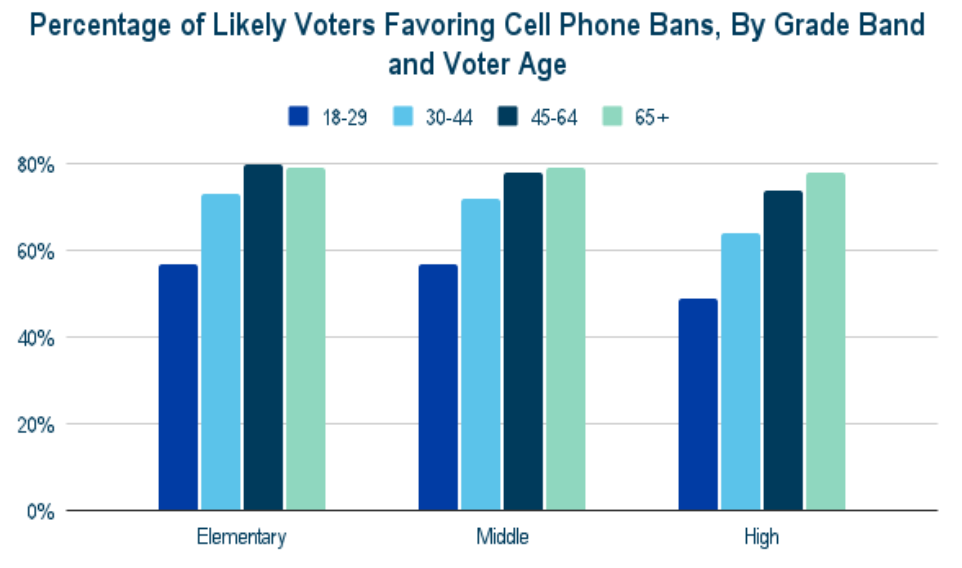Statewide Ban on Cell Phones in Missouri Schools: What Does It Mean, Who is Affected, and How Do Missouri Voters Feel About it?
By : Lucas Koch
Published On: July 25, 2025
On July 9, 2025, Missouri Governor Mike Kehoe signed Senate Bill 68 into law, enacting a statewide ban on electronic communication devices in Missouri public and charter schools beginning with the 2025–26 academic year. This bill comes in response to growing concerns among Missourians about technology in the classroom and reflects a broader desire to promote educational attainment, safety, and effective working environments for employees in Missouri schools.
The bill defines electronic communication devices as “a portable device that is used to initiate, receive, store, or view communication, information images, or other data electronically,” Under this definition, the legislation presumably applies to cell phones, tablets, and possibly smartwatches.
Missouri now joins at least 29 other states that requires schools to ban personal communication devices during the school day. This move aligns with existing national trends: according to a survey conducted by the National Center for Education Statistics (NCES), 77% of public schools nationwide already prohibit students from using cell phones during class. Missouri voters strongly support such measures. A SLU/YouGov poll conducted in February 2025 and sponsored by the PRiME Center found that over 70% of the 900 Missouri likely voters surveyed favored allowing public schools to prohibit students from accessing cell phones during regular instructional activities unless authorized by school principals.
Individual schools may tailor specific policies, but at a minimum they must prohibit students from using or displaying electronic communication devices from the beginning to the end of the school day. This includes instructional time, meal times, breaks, time between classes, and study halls. However, the bill incorporates important expectations, allowing devices to be used for educational purposes, in emergency situations, and for students who need devices due to specific educational or health needs, such as individualized education plans or 504 plans under federal law. Additionally, schools must establish disciplinary procedures for policy violations, though the bill sets no minimum standards for these consequences.
SB 68 is a wide-ranging bill on education that extends well beyond device restrictions. The comprehensive bill addresses student attendance calculation, school safety measures, teacher compensation, special education services, and perhaps most notably, a requirement for schools to implement a policy on personal electronic devices in school. To learn more about its full effects, see an official summary of SB 68 here.
Additional Resources:
To see the PRiME Center’s report on the SLU/YouGov poll, click here.
To see past publications on the SLU/YouGov poll, click here and here.





